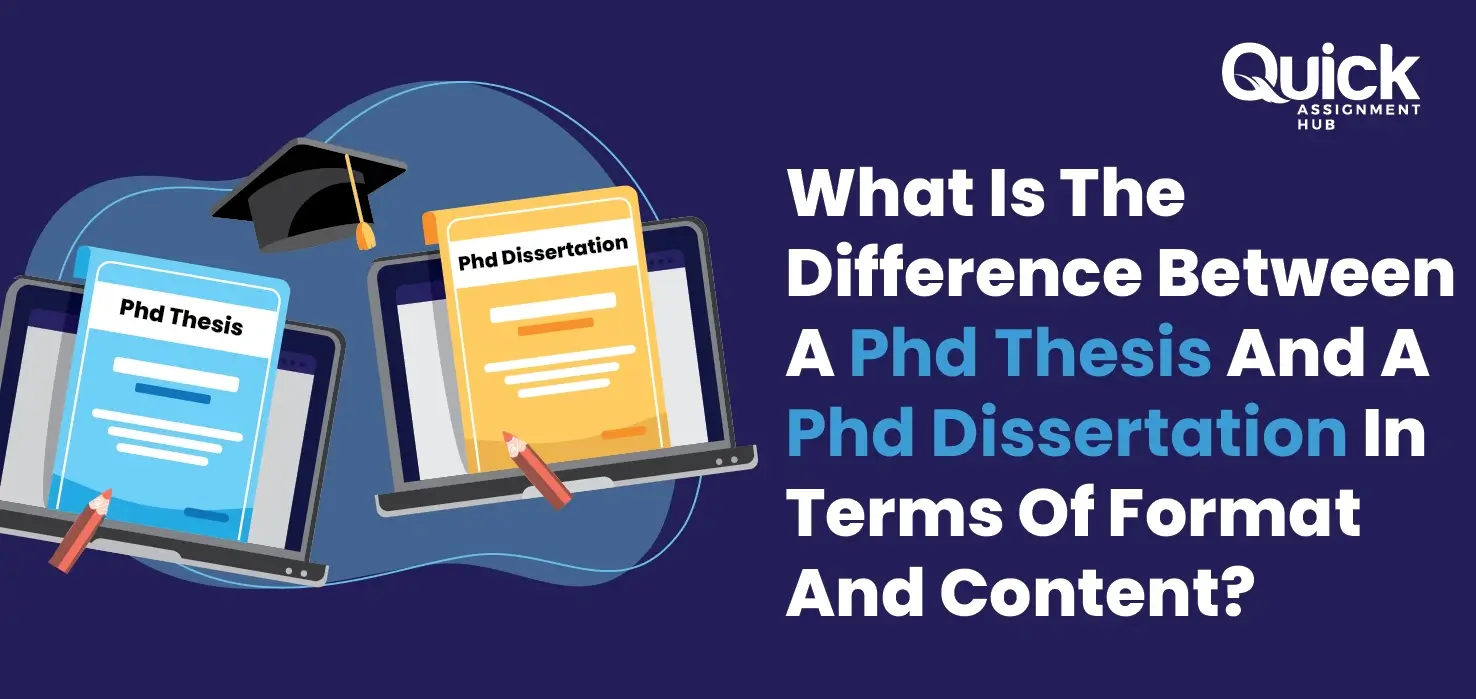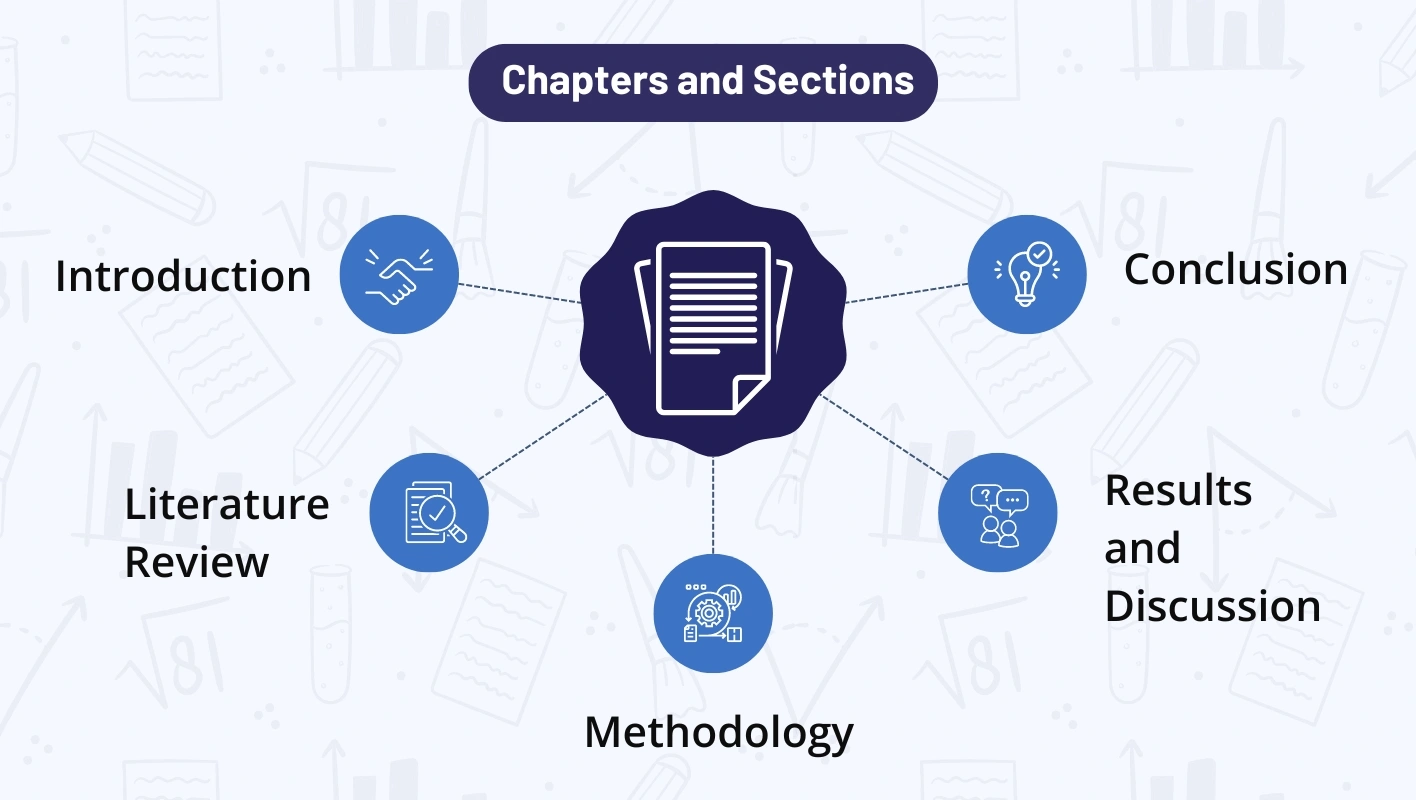
When it comes to earning a PhD, students often encounter two seemingly similar but distinct terms thesis and dissertation. The study specifically used thesis and dissertation as the terminology for carrying out the research.
Still, there are significant differences between the two, most notably in format and content. Any prospective PhD student must grasp these distinctions because it not only assists in the academic pursuit but also in preparing for what is to come.
Still, there are significant differences between the two, most notably in format and content. Any prospective PhD student must grasp these distinctions because it not only assists in the academic pursuit but also in preparing for what is to come.
A thesis is an original research piece that calls for more research as compared to an undergraduate thesis or term paper. It is characterized by a high level of writing and the student’s ability, literacy, and mastery of a subject. A master’s degree thesis is commonly written for the purpose of attaining a research degree and is not intended to be published alone.
A PhD dissertation is a large-scale original research work that students pursuing a doctorate are expected to complete. It composes an idea that has not been presented in other works and has not been done by anyone else before. This contribution may be a new perspective on an already discussed topic or even a new theory.
The dissertation format and the thesis format are related. They have several similarities, although the terms that are used for them vary. Both documents are formatted in such a way that they accommodate a logical and sequential account of the investigation conducted. Here’s a closer look at the typical structure:
The title page/cover page
Abstract (sometimes also called the executive summary)
Table of contents
List of figures/list of tables
Chapter 1: Introduction
Chapter 2: Literature Review
Chapter 3: Methodology
Chapter 4: Research findings/results
Chapter 5: Discussion/analysis of findings
Chapter 6: Conclusion
Reference list
Appendices
Dissertation: A PhD dissertation is normally longer than a master’s thesis and is usually expected to cost much more. The length of a dissertation can be anything, starting from 100 to 300 pages.
Thesis: A master’s thesis is typically shorter, ranging from between 50 and 100 pages.
Combined, both documents are similar in that they contain an introduction, literature review, methodology, results, and discussion; however, there are distinctions between the approaches of the two.

The introduction of a dissertation contains the background information, research questions, and the importance of the study. It also creates a solid foundation for the research. But, a thesis has a brief introduction that dwells more on the research problem and the objectives of the study.
Most of the time, the literature review in a dissertation is full. It should show you know the area of research well and highlight the research gaps that your research seeks to address. The thesis literature review is generally more selective, summarizing the work on the topic of interest, and may not have to be as exhaustive.
When writing a dissertation, the methodology section is elaborate as it describes not only what was done but why it was done. It often presents various methodological strategies and reasoning behind the selection made. However, in a thesis, the section on methodology might not contain as much detail and justification as background research methodology.
A results section provides new findings, and the discussion connects them to the case or problem and uses material from the literature review section. In a thesis, the results and the discussion are blended into one chapter with the most emphasis on how the results are related to past research.
Besides giving an outline of the findings of the research, a dissertation conclusion highlights the significance of the study, its future recommendations, and the weaknesses of the study. A thesis conclusion can be more concise and only include a summary of the results and their significance without extending to potential research directions.
As to the specificity of thesis vs dissertation, it is incredibly varied by factors such as your topic, your background knowledge towards the subject, and your overall abilities.
A PhD thesis is considered to be more complicated by the amount of research to be made, the size of the document to be developed, and the degree of the defence process. It is a long process that does not require much energy but requires lots of determination and genuine interest in your work.
Even though a dissertation may be shorter and not necessitate as much research as a thesis, it is still an exceptionally scholarly undertaking. But the actual difficulty is in integrating what is known, constructing a logical discourse, and neatly articulating a line of work.
As to the specificity of thesis vs dissertation, it is incredibly varied by factors such as your topic, your background knowledge towards the subject, and your overall abilities.
Considering that a dissertation is a large-scale study, appendices can contain extra information such as raw data, analyses beyond the main and the tables, or specific descriptions of the instruments and or materials used in the study. The reference section in a dissertation is also often long, which is due to the variety of sources used in the given scope of work.
A thesis may also contain appendices, but they are usually smaller in number and less elaborated. The list of references is less exhaustive compared to the one in a dissertation but it does not lack any key sources. Here is the basic format for the References:
Author
Year
Title
Level of Thesis or Dissertation
Database or Archive Name
URL
Therefore, whether you are writing a PhD thesis or dissertation, it is vital to evaluate the two with a view to achieving success. Both demand focus, logical analysis, and meaningful interaction with your subject of choice. A thesis is similar to a milestone, and it may be written when you complete your master’s degree, while a dissertation is a final idea. It shows your ability to contribute new knowledge. So, writing a thesis format or dissertation format might be a challenge, but don’t worry, you’re not alone here. At Quick Assignment Hub, our assignment writers and researchers are always on hand to help guide you through each stage of writing. Whether you are struggling with defining your topic, searching for sources, or editing your work, we’ve got you sorted. Visit the Quick Assignment Hub today and let us assist you!